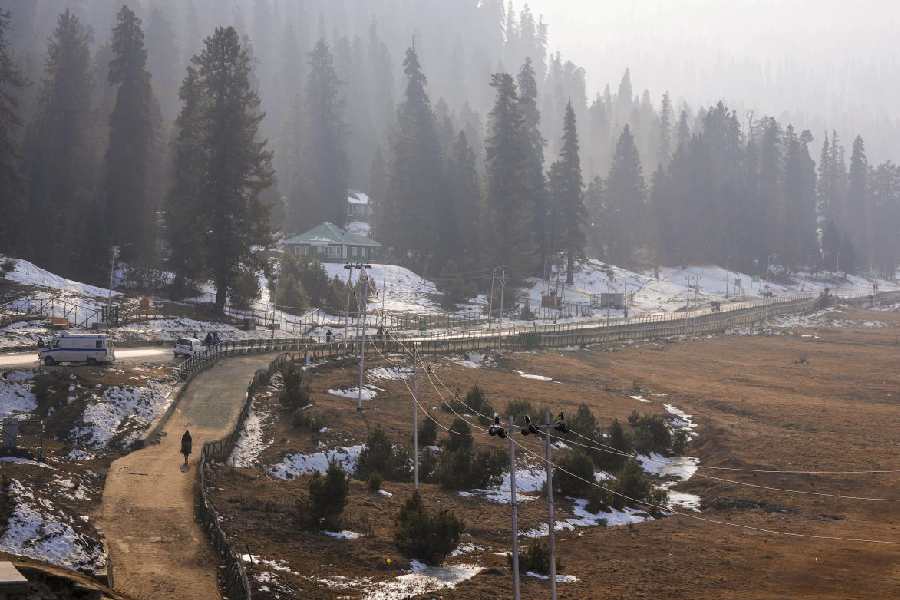A wet winter spell — probably accompanied by snow that the Valley has desperately pined for this season — promises to descend over Kashmir, bringing respite from a long dry spell marked by warmer days and colder nights.
The Srinagar Meteorological Centre has forecast the possibility of relief between January 25 and February 1; should the skies give rain, sleet or snow, it will break a two-month spell of dryness that has rendered large swathes of Kashmir arid and ochre, taken a toll on human health and led to serious concerns over an approaching drought.
There has not been a single day of skiing in Gulmarg due to the near absence of snow this winter; flowers have bloomed in some patches of the resort, an eyesore and an ill omen for this time of the year. The abnormal weather has set the alarm bells ringing in Kashmir, impacting crucial water resources; the water level in the Jhelum hit its lowest in a long time this month.
The Met office forecast means that Kashmir’s famed chilli kalan, or a 40-day spell of major cold which extends from December 21 to January 31, might not go completely snowless. A powdering of snow is expected over isolated higher reaches from January 25 to January 27. Besides light to moderate rain or snow is also expected in many places in lower, middle reaches. Then, says the Met office, light to moderate spells of rain or snow are likely around February 1.
“There can be light snowfall in Srinagar on January 30 and 31, though there might not be much ground accumulation (of snow),” Mukhtar Ahmad, director of the Srinagar Meteorological Centre said, adding, “We are expecting a break in the dry spell that has already lasted around 50 days.”
The centre is also expecting some relief from freezing temperatures, which have ranged between -4 and -7 degrees Celsius during nights and daytime temperatures that have exceeded the normal by at least six degrees Celsius for over a month now.
Srinagar recorded a low of minus five degrees on Monday night.
On January 13, the daytime temperature climbed to 15 degrees Celsius, the second highest temperature in January in 50 years.
The prolonged dry spell, though not a first-time occurrence, has left ordinary residents rather distraught. Thousands have attended special prayers, also called Istisqa, at countless mosques across Kashmir, praying for respite from the dry spell.
Experts believe the possible reasons behind the dry weather could be El Niño, an unusual warming of the Pacific that plays havoc with the weather systems around the world.











